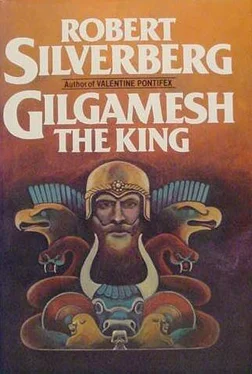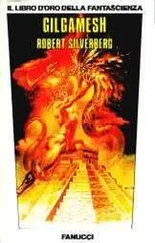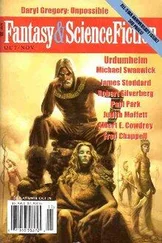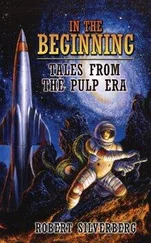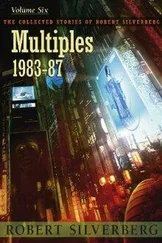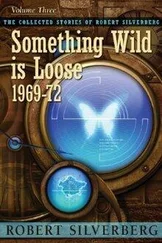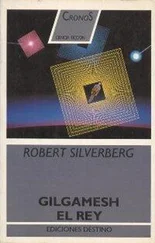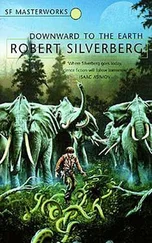Robert Silverberg - Gilgamesh the King
Здесь есть возможность читать онлайн «Robert Silverberg - Gilgamesh the King» весь текст электронной книги совершенно бесплатно (целиком полную версию без сокращений). В некоторых случаях можно слушать аудио, скачать через торрент в формате fb2 и присутствует краткое содержание. Год выпуска: 2012, Жанр: Старинная литература, на английском языке. Описание произведения, (предисловие) а так же отзывы посетителей доступны на портале библиотеки ЛибКат.
- Название:Gilgamesh the King
- Автор:
- Жанр:
- Год:2012
- ISBN:нет данных
- Рейтинг книги:5 / 5. Голосов: 1
-
Избранное:Добавить в избранное
- Отзывы:
-
Ваша оценка:
- 100
- 1
- 2
- 3
- 4
- 5
Gilgamesh the King: краткое содержание, описание и аннотация
Предлагаем к чтению аннотацию, описание, краткое содержание или предисловие (зависит от того, что написал сам автор книги «Gilgamesh the King»). Если вы не нашли необходимую информацию о книге — напишите в комментариях, мы постараемся отыскать её.
Gilgamesh the King — читать онлайн бесплатно полную книгу (весь текст) целиком
Ниже представлен текст книги, разбитый по страницам. Система сохранения места последней прочитанной страницы, позволяет с удобством читать онлайн бесплатно книгу «Gilgamesh the King», без необходимости каждый раз заново искать на чём Вы остановились. Поставьте закладку, и сможете в любой момент перейти на страницу, на которой закончили чтение.
Интервал:
Закладка:
"But all things end."
"Do they?" I asked.
He looked close at me as though he must surely be seeing into my soul with his milky sightless eyes and said, "When we build a house, do we expect it to stand forever? When we sign a contract, do we think it is binding for all time to come? When the river floods, do the waters not recede? Nothing is permanent. The dragonfly lives in a shell when it is young; then it comes forth, and it beholds the sun a little while; and then it is gone. So it is with mankind. The master and the servant both have their little moment, their glance at the sun. It is the way."
Those words again! They made me despair.
"It is the way.t'' I cried. "You tell me that too, father?" "Can it be otherwise? The same destiny is decreed for us all." Before I knew what I was saying I replied, "Even for you, father?" It was a crass and foolish remark, and my cheeks blazed as I said it. But he was unperturbed. "Let us talk of me some other time," said the Ziusudra calmly. "Today we talk of you. I think this of you, Gilgamesh of Uruk: that you are not frightened of death so much as you are angry at having to die."
"It is the same thing," I said. "Call it fear, call it anger-I see no difference. What I see is that the world is full of joy and wonder, and I have no wish to leave it. But soon I must." "Not soon, Gilgamesh."
"Why, do you know the number of my days?"
"I? No, not at all: I would not deceive you on that score. But you are still young. You are very strong. You have many years ahead of you."
"However many they be, they are too few. For their number is set and limited, father." "Which angers you."
"Which distresses me greatly," I said.
"And in your distress you have come to me."
"I have."
"Do you come seeking life from me, or wisdom?"
"I can conceal nothing from you. I come seeking life, father. Wisdom is another matter. I hope time will bring it; but what I must have is time."
"And you think that by coming here you may win more time for yourself?."
"So I hope, yes."
"Then may the gods grant you all that you seek," the Ziusudra said. There was a long silence. His head sank forward on his breast and he seemed lost in brooding: he frowned, he pursed his lips, he sighed. I felt that I had wearied him; I dared not speak. The moment was endless. Come, I thought, reach out to me, give me your blessing, teach me the secret of your eternal life. But still he sighed, still he frowned.
Then he lifted his head and peered at me with such intensity that I could not believe he was blind. He smiled. Softly he said, "We must speak of these things again, Gilgamesh. I will send for you another day." And he made the smallest of gestures: it was a dismissal. I felt an invisible curtain descend between us. Although the Ziusudra still sat before me, unmoving, he was not there. Lu-Ninmarka, who had waited all this while by my side, came forward and touched me by the elbow. I rose; I offered a salute; I took my leave. I followed Lu-Ninmarka through the dark maze to the upper world like one who walks in sleep.
I WORKED in the fields and I went to the temple to hear them telling and retelling their tale of the Flood, and I took my meals of lentils and goat milk, and one day flowed into the next. I wondered vaguely about events in the world beyond the shores of this island, but I gave no thought to departing. Occasionally I saw the streets of Uruk in my mind, or the face of my wife or my son, or some man of the court: but they seemed like scenes out of a dream. Once I imagined I saw Enkidu before me, and I smiled at him but I did not go toward him. Another time Inanna slipped into my dreams, radiant, magnificent, more beautiful than she had ever seemed: seeing her, I felt no hatred for her scheming, only some mild regret that such beauty had been in my arms once and no longer could be mine. So the days' went by. Uruk and all its concerns had drifted away from me. And in the ripeness of time I found myself in that winding passageway once again, descending to the lair of the Ziusudra.
He sat as he had sat before, staunchly erect on his little wickerwork stool as though it were a throne. I felt the power of him. It surrounded him like a wall. In his own way he was a king; he was almost a god. It seemed to me that he dwelled on some plane beyond my understanding; I wanted instinctively to kneel before him the moment I came into his presence. I think I have never known another man who aroused such awe in me.
As soon as I entered he began to speak; but I could not make sense of what he was saying. Words rose from him as a column of thick smoke rises from a fire of green wood; and the words were as impenetrable as the smoke, so that I was unable to see through the sound to the meaning. His voice circled round and round me. He spoke the language of the Land, or so I believed, and his words were calm and self-assured, as though he were presenting some closely reasoned argument; but no word followed upon the last in any manner I could comprehend. I knelt and stared. Then out of the murky flow I began to perceive a glimmer of understanding, as one sees sparks flying upward within the smoke. He was speaking, so it seemed, of the time the gods had sent the Flood as a punishment upon mankind and he had led his people to the high ground to wait the waters out. But I was not sure. There were moments when I thought he might be talking about the proper design of chariots, or about the places one goes to find deposits of rock-salt in the desert, or other such things far removed from the table of the Flood. I was lost in the tangled skein of his discourse; I was altogether baffled.
Then he said suddenly with perfect clarity, "There is no death, if only we do the tasks the gods appoint for us. Do you understand me? There is no death."
He turned toward me, and seemed to be waiting.
I said, "And so it was your task to resettle the Land when the waters receded; and for that the gods spared you from death. Then what is my task, Ziusudra? You know that I also would be spared from death."
"I know that."
"But the Flood will not come again. What shall I do? I would build a ship like yours, if there were need. But there is no need for one."
"Do you think there was a ship, Gilgamesh? Do you think there was a Flood?"
By the faint flickering light of his little lamp I tried and failed to read the mysteries of his face. His mind was too agile for me; he danced away from my comprehension. I was losing hope that he would help me find what I sought. "I have heard what they say in the temple here," I said. "But what am I to make of it? They tell a different tale in the Land."
"Trust it as we tell it. The rains came; in Shuruppak the king gathered his people, and they put provisions aside and carried them to the high ground, and remained there until the fury of the storm was spent. Then they returned to the Land and rebuilt all that had been destroyed. That is what happened, those many hundreds of years ago. All the rest is fable."
"Including," I said, "the part where Enlil came to you and blessed you and sent you to Dilmun to live forever?"
He shook his head. "The king of Shuruppak fled to Dilmun in despair. He went there when he saw that it was folly to have saved mankind, since all the old evils still thrived. He left the Land; he gave up his realm; he sought virtue and purity on this island. That is as it was, Gilgamesh. All the rest is fable."
"The tale has it that the gods gave you eternal life. Was that only a fable too? There is eternal life here, so it would seem."
"There is no death," said the Ziusudra. "Have I not told you that?"
"You have told me, yes. We must do the tasks the gods decree for us, and then there is no death. But I ask you again: What is my task, Ziusudra? How am I to know it? What secret must I learn?"
Читать дальшеИнтервал:
Закладка:
Похожие книги на «Gilgamesh the King»
Представляем Вашему вниманию похожие книги на «Gilgamesh the King» списком для выбора. Мы отобрали схожую по названию и смыслу литературу в надежде предоставить читателям больше вариантов отыскать новые, интересные, ещё непрочитанные произведения.
Обсуждение, отзывы о книге «Gilgamesh the King» и просто собственные мнения читателей. Оставьте ваши комментарии, напишите, что Вы думаете о произведении, его смысле или главных героях. Укажите что конкретно понравилось, а что нет, и почему Вы так считаете.
